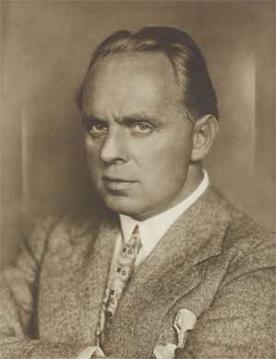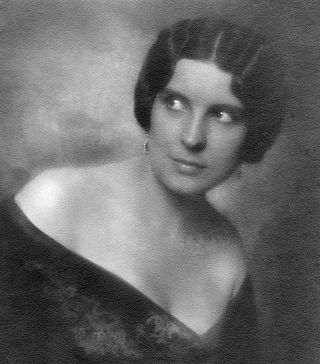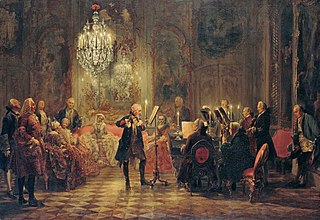
Johan Marius Nicolaas Heesters, known professionally as JohannesHeesters, was a Dutch actor of stage, television and film, as well as a vocalist of numerous recordings and performer on the concert stage with a career dating back to the 1920s. He worked as an actor until his death and is one of the oldest performing entertainers in history, performing shortly before his death at the age of 108. Heesters was almost exclusively active in the German-speaking world from the mid-1930s and became a film star in Nazi Germany, which later led to controversy in his native country. He was able to maintain his popularity in Germany in the decades until his death.

Elisabeth Christine of Brunswick-Wolfenbüttel-Bevern was Queen of Prussia and Electress of Brandenburg as the wife of Frederick the Great. She was the longest-serving Prussian queen, with a tenure of more than 46 years. She was praised for her charity work during the Seven Years' War.

Frederica Louisa of Hesse-Darmstadt was Queen of Prussia and Electress of Brandenburg as the second wife of King Frederick William II.

Friedrich Rudolf Klein, better known as Rudolf Klein-Rogge, was a German film actor, best known for playing sinister figures in films in the 1920s and 1930s as well as being a mainstay in director Fritz Lang's Weimar-era films. He is probably best known in popular culture, particularly to English-speaking audiences, for playing the archetypal mad scientist role of C. A. Rotwang in Lang's Metropolis and as the criminal genius Doctor Mabuse. Klein-Rogge also appeared in several important French films in the late 1920s and early 1930s.

Kira Kirillovna of Russia was the second daughter of Grand Duke Kirill Vladimirovich of Russia and Princess Victoria Melita of Saxe-Coburg and Gotha. She married Prince Louis Ferdinand of Prussia, grandson of the last German Emperor Wilhelm II.

Marta Eggerth was a Hungarian actress and singer from "The Silver Age of Operetta". Many of the 20th century's most famous operetta composers, including Franz Lehár, Fritz Kreisler, Robert Stolz, Oscar Straus, and Paul Abraham, composed works especially for her.
Das kleine Hofkonzert is a musical comedy in three acts "from the world of Carl Spitzweg", music by Edmund Nick, libretto by Paul Verhoeven and Toni Impekoven. It premiered on 19 November 1935 at the Munich Kammerspiele.
Siegfried Schürenberg was a German film actor. He appeared in more than 80 films between 1933 and 1974. He was born in Detmold, Germany and died in Berlin, Germany in 1993, at age 93. Although he never played leading roles, he was a well-known supporting actor who played the role of Sir John in numerous Edgar Wallace films during the 1960s. He was also a busy dubbing actor, for example as the German voice for Clark Gable in most of his films, including Rhett Butler in Gone with the Wind.

The Old and the Young King is a 1935 German historical drama film directed by Hans Steinhoff and starring Emil Jannings, Werner Hinz and Leopoldine Konstantin.

Hanna Ralph was a German stage and film actress whose career began on the stage and in silent film in the 1910s and continued through the early 1950s.

Matthäus Merian was a Swiss engraver and portrait painter.
Winnie Markus (1921–2002) was a Czechoslovakia-born German film and television actress whose captivating performances left an indelible mark on the German entertainment industry. With a career spanning over four decades, Markus graced the silver screen with her talent, charm, and versatility.

Elizabeth Auguste Marie Florestine Luise, Princess of Urach and Countess of Württemberg was the wife of Prince Karl Aloys of Liechtenstein.

When Women Keep Silent is a 1937 German comedy film directed by Fritz Kirchhoff and starring Johannes Heesters, Hansi Knoteck and Friedrich Kramer. A newly married couple become involved in a series of marital differences, largely due to misunderstandings.

Men Are That Way is a 1939 German drama film directed by Arthur Maria Rabenalt and starring Hertha Feiler, Hans Söhnker and Hans Olden. The film's sets were designed by the art director Willi Herrmann. It was remade by Rabenalt in Austria as Arena of Fear (1959).
Renate Holm was a German-Austrian film actress and operatic soprano. She worked as a dentists' assistant and took private singing lessons, resulting in performances in musical films and schlager. She made her debut at the Vienna Volksoper in 1957, and moved on to the Vienna State Opera where she worked for decades. She appeared internationally and made many recordings, especially for the WDR in a series of operettas with conductor Franz Marszalek. She later worked as a voice teacher, juror at competitions, and festival manager. Her memoir was published in 2017.

Frederick the Great Playing the Flute at Sanssouci or The Flute Concert is an 1852 oil on canvas history painting by the German painter Adolph Menzel. It depicts Frederick the Great, King of Prussia playing the flute at an evening concert at Sanssouci and is now in the Alte Nationalgalerie in Berlin.
Margit Schramm was a German soprano in operetta, opera and song. She also appeared as a film actress and hosted a television show. In the 1960s, she became known as an operetta diva on stage, German television, in numerous concerts and in films, where she often appeared together with her favourite stage partner, the tenor Rudolf Schock.

The Governor is a 1939 German drama film directed by Viktor Tourjansky and starring Brigitte Horney, Willy Birgel and Hannelore Schroth. It is based on the play Die Fahne by Emmerich Groh. It was shot at the Babelsberg and Tempelhof Studios in Berlin and on location in East Prussia. The film's sets were designed by the art director Max Mellin. It was produced on a budget of 715,000 Reichsmarks.

Countess Wilhelmine Christine of Nassau-Siegen, German: Wilhelmine Christine Gräfin von Nassau-Siegen, official titles: Gräfin zu Nassau, Katzenelnbogen, Vianden und Diez, Frau zu Beilstein, was a countess from the House of Nassau-Siegen, a cadet branch of the Ottonian Line of the House of Nassau, and through marriage Countess of Waldeck-Wildungen.















